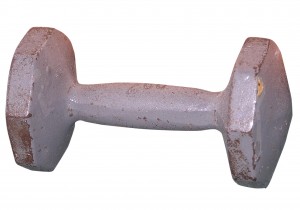 Dedicated strength training, often used interchangeably with weight training, is necessary to your goal of becoming fit(ter): greater strength allows enables sustained aerobic activity, which improves aerobic fitness, which in turn makes a person stronger. There are many forms of strength training, and there is no rule stipulating that a person should only do so in a weight room.
Dedicated strength training, often used interchangeably with weight training, is necessary to your goal of becoming fit(ter): greater strength allows enables sustained aerobic activity, which improves aerobic fitness, which in turn makes a person stronger. There are many forms of strength training, and there is no rule stipulating that a person should only do so in a weight room.
The next issue is an unlikely sounding one, but generates enthusiastic debate: is there an ideal time to strength train, and when?
Generally, a person is wider awake in the morning, and is less fatigued than he or she would be after a long day at work or school, which means that there will be more concentration on correct technique. Moreover, testosterone levels are higher in the morning (in both genders), which is helpful if strength training for weight loss is the main fitness goal.
In contrast, strength training in the afternoon can produce better results as pain thresholds are lower at this time, allowing a person to exert him or herself further. One limiting factor is the time available from work or school to train during lunch.
Training in the evening is a more accessible option for most people and considered by some to be ideal; body temperature is already high, for one, although mental focus is usually lower at the end of the day, which could lead to injury. However, the body is also in its best condition for physical exertion at this time, as a person’s strength, stamina, coordination, flexibility, and lung capacity are at their highest.
There is also the idea that strength training before cardio will use up the sugars immediately available to muscles. This depletion means that the subsequent aerobic exertion will force the body to utilize its glycogen stores, ultimately leading to weight loss. However, strength training before a cardio session may result in a person facing physiological difficulty in performing aerobic activity such as running safely.
On the other hand, there are findings that a person’s EPOC (excess post-exercise oxygen consumption) is greater if strength training is carried out after cardio, meaning more calories are burnt, and weight loss will occur anyway.
When to strength train could depend on the time of day, fitness goals, what fits it into a schedule, or even the gym’s opening hours. While the answer can vary between individuals, it is usually influenced by what is most convenient at the time and what that person finds most effective.





